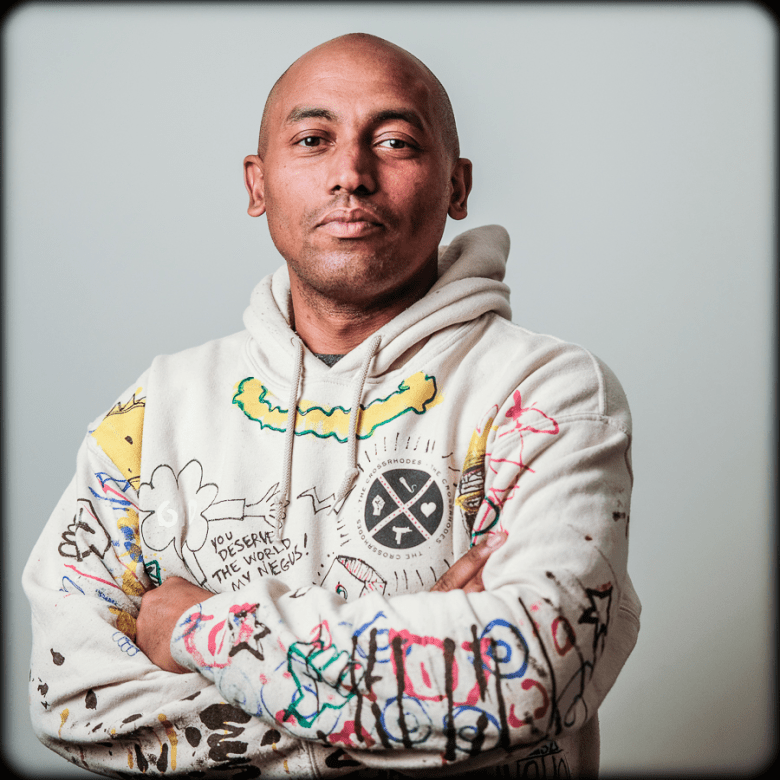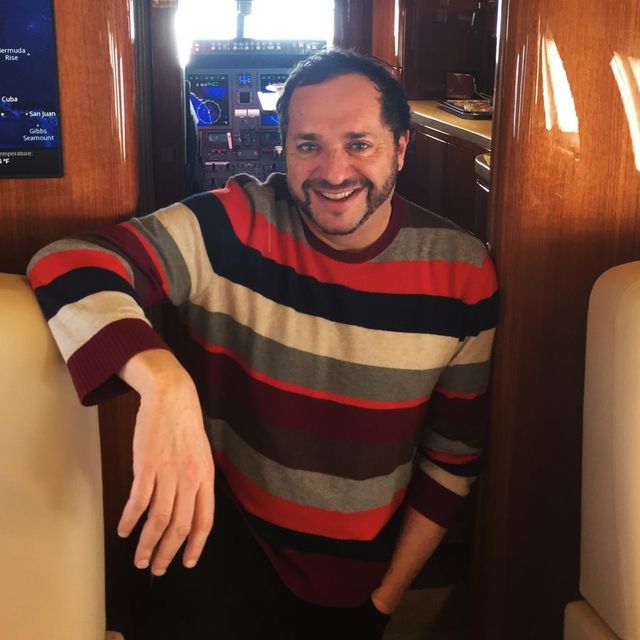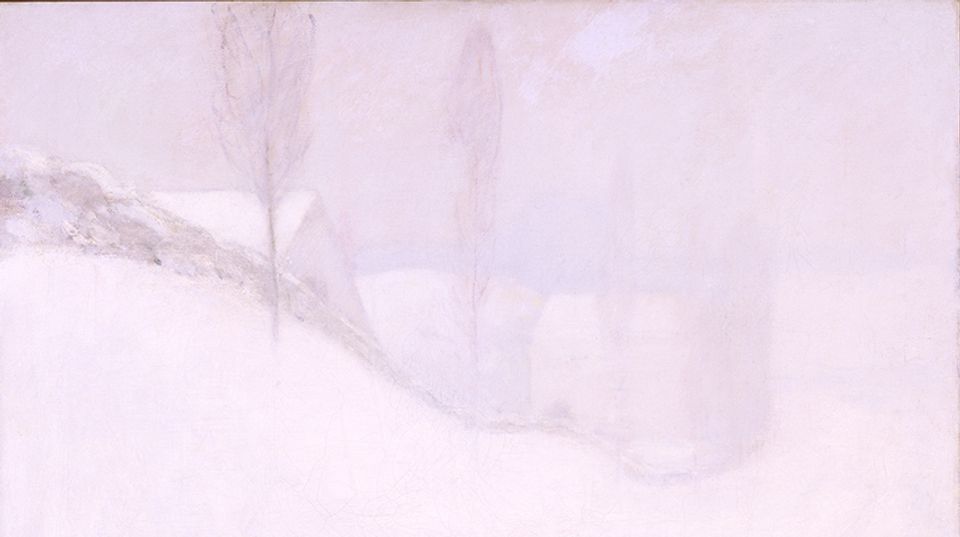From 2011 to 2020, SAAM hosted Luce Unplugged, a free, monthly concert series that celebrated the work of local musicians in its Luce Foundation Center. Since in-person events have been restricted during the pandemic, we teamed up with a local music podcast, Hometown Sounds, to continue to bring you music and conversations from your favorite DC artists. In our June episode, Wes Felton reminisces about his father, jazz Legend Hilton Felton, and lets us in on how to freestyle like a pro. To hear the full interview, including the story of Wes Felton’s rap battle with Dave Chappelle, visit hometownsoundsdc.com.
Hometown Sounds: For anybody that isn't familiar with you and your work, can you describe your origin story and the kind of work you love to do?
Wes Felton: Like many artists in this business, my origin story starts with a father who was a jazz musician. His name was Hilton Felton, and he was an original member of The Soul Searchers, who went on to play with artists like George Benson and Grant Green. When I was two years old, my parents split. My mom is very religious, so I got that church experience of performing in front of audiences. The cool thing with my father was that sometimes his time with me would land when he had gigs. I would be backstage with David “Fathead” Newman and with random people at jazz festivals. It tapped into my passion for the process of art, not necessarily the results.
I started doing poetry and writing as a teenager. I was sneaking into places like Bukom Cafe and Soul Brothers Pizza, that used to be at 14th and U Street. I was still a teenager and a student at School Without Walls, but I was going to these places, and reading and reciting what I was writing. Tony Blackman, Toni Asante Lightfoot, DJ Renegade, and Kenneth Caroll were older writers who validated me. They encouraged me and not only told me I was talented, but also thought I was dope.
So, you mix all that experience with being on BET’s Teen Summit every Saturday morning. I learned the ins and outs of that level of the television industry, and again, I was struck with that passion for the process. I eventually went to Carnegie Mellon University to study theater to gain additional techniques. While I was in Pittsburgh, I started a music career, putting out tapes and albums as an outlet. I hooked up with a guy named Steve Griffin, AKA DJ Out of Reach, and we used to record albums. He was making beats and we hooked a mic up through his mixer and we just started making tapes. At that point, I was just like, all right, I'm in the business now, this is it—my dad's worst nightmare.
HS: Speaking of your dad, how would you characterize your relationship with them? And do you have a favorite memory of him?
WF: I never desired to be a piano player like my father, but I always wanted to be like him in having a passion and appreciation for music, particularly for a certain aesthetic of music that you can identify from lineages and legacies of music. When I listen to music, and I got this from my dad, I’m making connections.
I was one of those weird kids who didn't grow up listening to New Edition. I was listening to John Coltrane and Miles Davis. The closest I got to R&B would be Donny Hathaway or Roberta Flack. When rap came, it was like, oh, okay, this is it, this is mine. I remember my dad saying, that rap stuff is a trend, it’s not going to be around for a long time. I said, “Dad, I'm telling you this thing is hot.”
I would share artists with him, and he would come back and be like, “When they say ‘Yo Mona Lisa, could I get a date on Friday... oh yeah man, I dig that, I see what they're doing.” So eventually I won him over as a hip hop fan.
My dad always taught me that it's one thing to say or have an opinion about something, but it’s another thing when you can actually manifest it. When I told my dad I wanted to be an actor, he said, all right, let me see. When he saw me in an actual production, in a play, he was like, oh, wow, you can do that too. I definitely thank him for giving me kind of a graduate degree in music and entertainment.
HS: You put out quite a lot of music during this pandemic period. Was it a creative time for you?
WF: I've always accepted the role of trailblazer and pioneer in my own generation of DC music. When you have people looking at you as a blueprint, you automatically either accept that calling or you don't. I accepted that calling a long time ago. I just felt the need to show people it don't stop, art don't stop.
My instinct as an artist was to get out whatever I need to get out as soon and as much as possible. That's always been my approach, because I look at my art more like a periodical. I try to put out an album every month. So, the pandemic didn't affect me creatively in terms of shutting me down.
I miss being on the road and traveling. Right up to the point of the pandemic, Raheem Devaughn and I had been touring nonstop with our group CrossRhodes since 2016. Every other week or every weekend we would be in a different part of the country or in another country. That was definitely the most still I had been in four years, which was interesting as well.
Making the music is important for me. I think making music is just what you're supposed to do because you just never know whose life you're saving at that moment or whose experience you're representing, whether you're aware of it or not.
HS: My next question is about the art of freestyling. It's always struck me as an incredible ability. How is it that when you're dropping a line, there's another part of you thinking ahead to the next statement? What cognitive multitasking is going on? How do you do it?
WF: Well, my friend, I can't really give you any suggestions,
but in my opinion, you answered your own question.
It's not something that's based on complexities or complexion.
It's about the ability to kind of precede the next expression
or word that will come up from out of the mouth.
Sometimes you gotta take your time, go ins and outs,
slow down the pace
in order to create
the next word that will lace
the track that's been put in place.
For me, it’s knowing how stories work, knowing that there's a beginning, a middle, and an end. As long as I get either to the middle or the end, that's all that matters. You can't stay at the beginning because then you're stuck. It’s not easy. It definitely involves practice.
Something that some people won't admit is that you should always have anywhere from five to 15 bars on file that you can use as transitions to get you to the next verse. Sometimes you can get stuck on the beginning of the story and if you're not careful, you forget.
HS: So Wes, you are an actor, singer, poet, and painter. Do the different parts of your artistic practice, inform each other? Does your acting inform your stage presence when you perform music?
WF: Absolutely. I would definitely say that. A teacher at School Without Walls, Geraldine Gillstrap, noticed that I was kind of a rebel without a cause. She came to me and said, hey, check out this play, called My Children! My Africa! by Athol Fugard. I think you should be an actor.
I read the play by Fugard, a south African playwright. It included a teenage character who was rebellious and protested apartheid. I was really drawn to the play and connected with it and performed it.
When I performed it, people were impacted. They were crying and I realized, wow, this could be used as a tool, as a method. I went on to study at the Chautauqua Institution in upstate New York and then went on to the Carnegie Mellon theater department. It was there where I realized, oh, this is the source, this is what it is. I tell people all the time that the acting is feeding it all. What I learned in school as an actor and what I learned through execution and practice. I'm definitely pulling from theatrical sources. Even as I write, I try to write visually so at any point it could be presented as a one man show or a film.


















